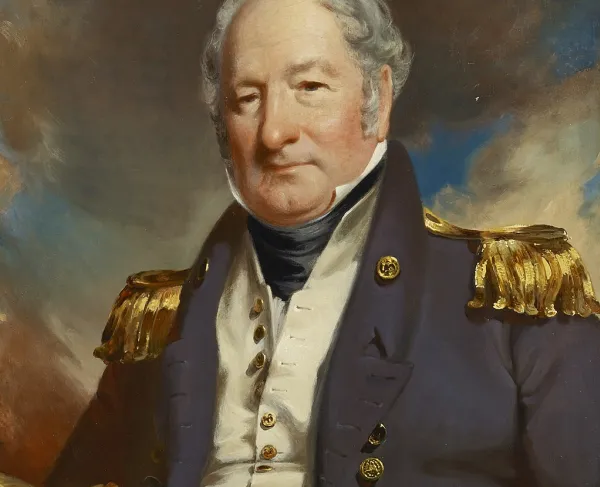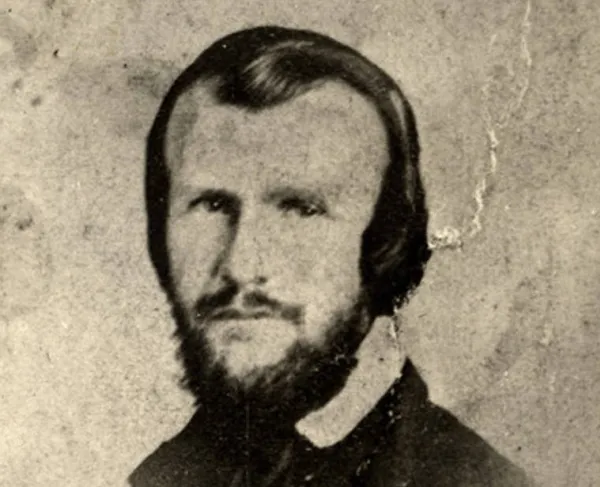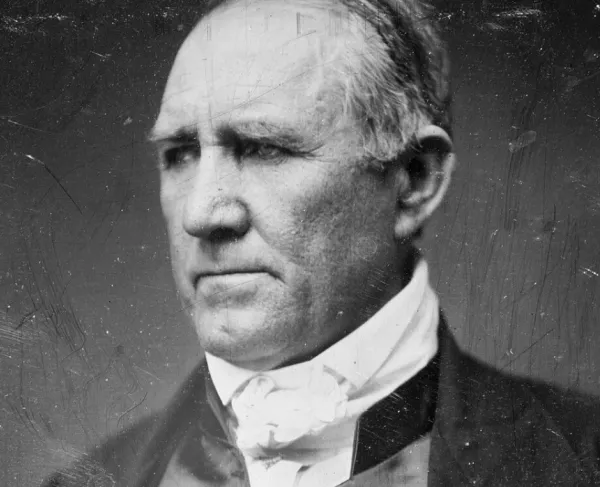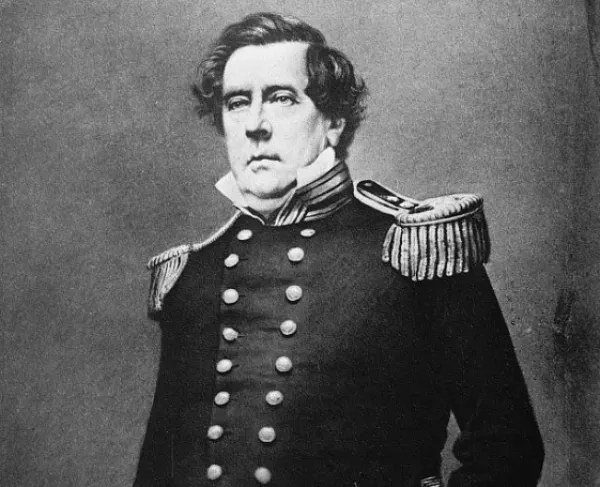James Barron

James Barron was an officer in the United States Navy whose career spanned more than half a century, including service in the First Barbary War. However, he is best known for commanding the USS Chesapeake during the infamous Chesapeake-Leopard affair, an incident that marred Barron’s reputation but was a crucial step on the road to war with Great Britain in 1812.
Barron was born in Hampton, Virginia, September 15, 1768, to James Barron, a well-to-do merchant sea captain. During the Revolutionary War, his father and uncles organized the naval defenses at Hampton. Virginia Governor Thomas Jefferson also commissioned his father as a commodore in the Virginia State Navy. Barron and his brothers—one of whom was future commodore Samuel Barron—apprenticed under their father as boys. The younger James Barron entered the U.S. Navy as a lieutenant in 1798, serving aboard the United States under John Barry. He was promoted to captain the following year and assumed command of the USS Warren during the late stages of the Quasi-War with France.
In 1804, he returned to his hometown of Hampton to supervise the construction of gunboats for the Navy. In April of that year, he received command of the USS Essex, and commanded it during the First Barbary War. He served under the command of his brother, Samuel, who commanded a squadron in the Mediterranean. His brother stepped down due to health problems in 1805, and in 1806, James assumed command of the squadron and received a promotion to commodore. During this period, Barron presided over a board of inquiry examining the loss of the USS Philadelphia under William Bainbridge.
In 1807, Barron returned to the United States to take command of the USS Chesapeake. Tasked with preparing her for a voyage to the Mediterranean, Barron faced the difficulties of an inexperienced crew and a poorly equipped vessel moored at Norfolk, Virginia. In the meantime, British warships patrolled the American coast, blockading French naval vessels in American ports and preventing them from aiding Napoleonic France. Waiting at sea near Norfolk, British naval officers learned that a handful of British seamen had deserted and were serving aboard the Chesapeake. On June 22, 1807, while Chesapeake was sailing out of port, Captain Salusbury Pryce Humphreys, commanding HMS Leopard, hailed Barron to arrange for the return of the deserters. When across-water discussions proved inconclusive, Leopard fired a warning shot across Chesapeake’s bow, followed immediately by a broadside. Barron suffered three men killed and another 18 wounded, including himself. Worse, the hapless Chesapeake only returned fire with a single gun. A mortified Barron ordered his colors struck and offered his surrender. The British refused, however, and boarded Chesapeake instead. Four alleged deserters were seized from Barron’s crew, one of whom, a British citizen named Jenkin Ratford, was sentenced to death.
The Chesapeake-Leopard Affair, as the incident became known, sparked outrage in the United States and brought increased attention to the issue of impressment—the process by which the British navy believed they could legally seize sailors accused of desertion from American ships and force them to serve Britain. While the affair was not a direct cause of the War of 1812, it is widely accepted as a key step on the path to war with Great Britain. For his role in the incident, Barron faced a court martialed in 1808 which found him guilty of not preparing his ship for potential action. He was suspended for five years without pay.
After six years away from the Navy, Barron sought reinstatement. However, the stain of the Chesapeake-Leopard Affair still marred his reputation, and some officers objected to Barron returning to the service. Among those critical of Barron was Stephen Decatur, who had once served under Barron and was a member of the court marital that convicted him in 1808. When Decatur’s criticism became too much to bear, Barron challenged him to a duel with pistols. In the ensuing duel on March 22, 1820, both men were wounded, Decatur mortally. Barron reportedly forgave the dying Decatur, who passed away that night.
Barron’s service in the Navy continued until his death. He became the senior-most officer in the Navy in 1839. He died in Norfolk in 1851.





